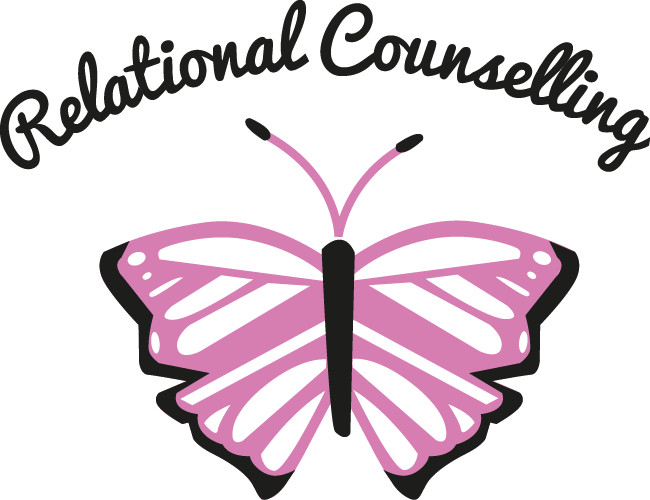The Inner Critic
In a never-ending quest for self-awareness, “we are our own worst critics” is a statement that rings both true and sadly can sometimes prevent us from seeing the good in ourselves. A persistent voice within that seeks to protect us, but has the unfortunate consequence of undermining our confidence by holding a magnifying glass of scrutiny up to the actions and efforts of ourselves and others. Ultimately distorting our view and revealing our truest vulnerabilities.
What is Your Inner Critic?
Your inner critic is that part of you protecting you from harm, ensuring you're ok. It can come across as a bully, or as providing harsh judgement, but this is based on fear, and there are intentions behind the words. One way to view your inner critic is like a scared inner child, acting from fear and seeking reassurance by way of compassion and empathy from you. Acting on behalf our unmet needs; the needs we didn't get in childhood and seek today. Your inner critic may manifest by preventing you from undertaking that new course or pursuing a relationship. It may tell you ‘you aren’t good enough’ or that ‘you’re an imposter’. By allowing these feelings to fester and prevent you from doing work on your inner critic, feelings of numbness can develop over time where unmanaged and unmet needs cause overwhelm and turn to physical and mental illness.
Things to Remember About Your Inner Critic
It's your Inner Critic’s aim to protect you from harm, and ensure you are ok
It acts from fear, levelling every criticism it can imagine anyone else could throw at you before you are given the opportunity to make that mistake.
The Inner Critic can sound like an authority figure, but it is emotionally, the age it was when it first appeared. (For most, this is around age six.)
The Inner Critic is a part of you that will never go away. It is completely natural, and if you can avoid getting pulled in by the fears and judgments, it can be useful.
The Inner Critic sounds like many different things (afraid, insecure, upset, angry, judgmental, very rational, like a procrastinator, etc.) and will link up with any other part of you that also feels scared or worried.
The Inner Critic is very smart and if you stop being pulled in by the fears and judgments and look for the insights and observations underneath the fears, it can make for a good companion.
The key in responding to your inner critic is with care, kindness, curiosity and compassion. Using your adult self to listen well and providing reassurance to it. In helping you respond, view this part of you as your inner child or if you find this difficult, any child, how would you respond to a child with the same fears of your inner critic, what would they need and how would they feel about your response?
Six Steps to Changing Your Relationship with Your Inner Critic
-
Take note of any triggers that come up with your inner critic, what happens? (E.g. What does your inner critic say) Remain curious, and acknowledge that the inner critic is part of you (it doesn't define you, or is the complete you).
-
View the Inner Critic as your scared inner child and imagine you were talking to this inner child directly; recognise the fears within the voice, acknowledge and respond with care, kindness, and compassion – use your adult self to reparent this part by being knowledgeable and dependable.
-
Separate what truths are in the Inner Critic’s statements without getting pulled into the Inner Critic’s (full of fear) interpretations.
-
Consider, look and explore for other perspectives. What is your inner critic really trying to say to you?
-
Consider how you want to respond? Use our guidance of seeing your inner critic as your scared inner child, how would a child respond to what you say in return? Would they be understood, validated, seen or would they feel shamed, misunderstood and embarrassed? You may want to look at this from different perspectives. Try to avoid judgements, harsh tone or words, and stay with being compassionate with the parts of you that are scared or not getting what they want.
-
To help you remember what part of yourself you are addressing, you can consider using a picture to remind you of your inner child inside, or use tools to symbolise your commitment to looking after yourself. Such as using a bracelet or ring that you associate with a particular mindset or intention. For example, you might wear a bracelet with a small charm that symbolises balance. Whenever you look at or touch the bracelet, it can serve as a reminder to maintain balance in your daily activities, ensuring you don't overcommit or neglect self-care. This tangible object can help anchor you in your desired perspective and remind you to return to your intention throughout the day.
How Therapy At Relational Counselling Can Help
Therapy can be a powerful ally in the battle against your inner critic, providing a safe space to explore its roots and develop strategies to manage it. Through therapy, you can learn to respond to your inner critic with compassion and curiosity, transforming it from a relentless rival into a wise advisor. This process can include embracing self-compassion exercises, which you can explore with your therapist, and learning additional tools to build a healthier relationship with yourself. For a practical starting point, I have included a link to one you can start now by clicking here.
By working on self-awareness and addressing unmet childhood needs, therapy helps you reparent and build a healthier relationship with yourself, fostering personal growth and improved mental health. As you work to address the needs of your inner critic, know that many tools and resources are available, each helping you take steps towards a more compassionate and confident you.
- Content by Melissa and Elizabeth, Edited by Patrick


